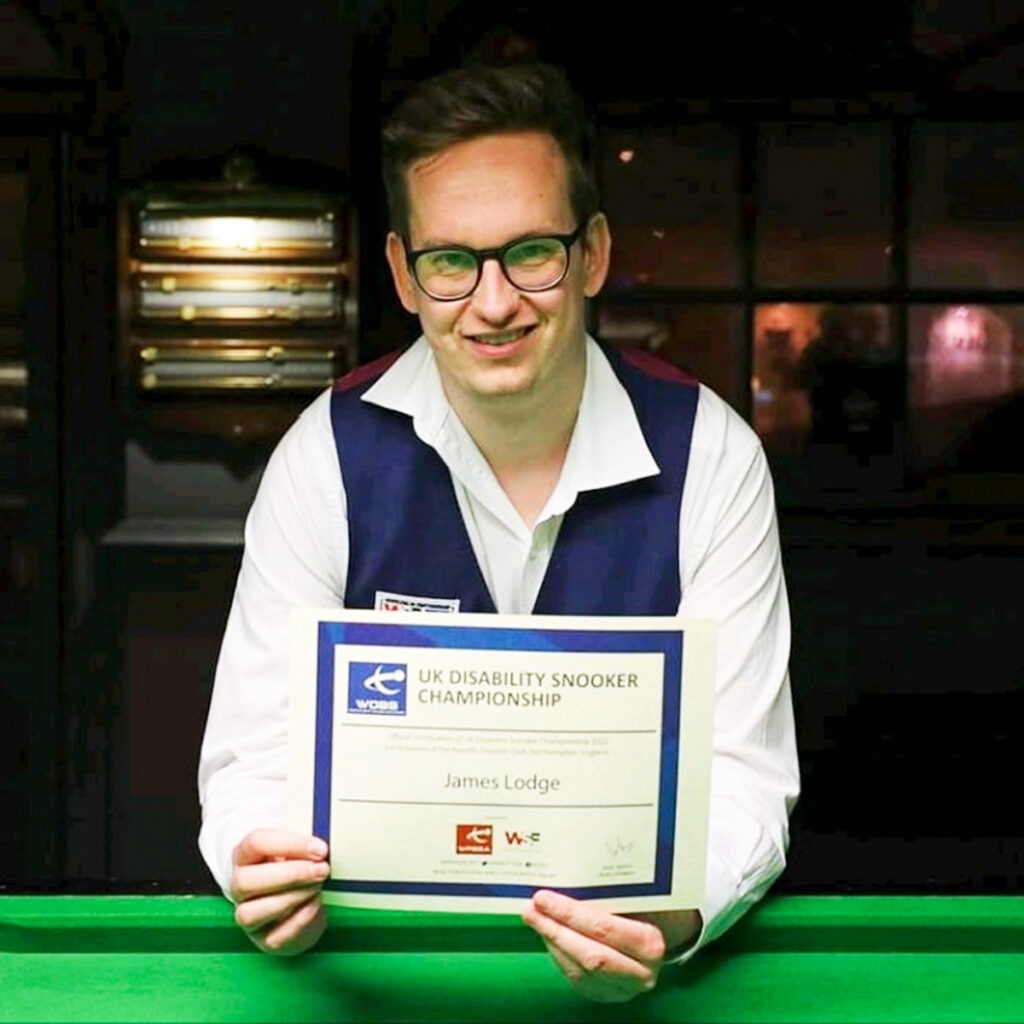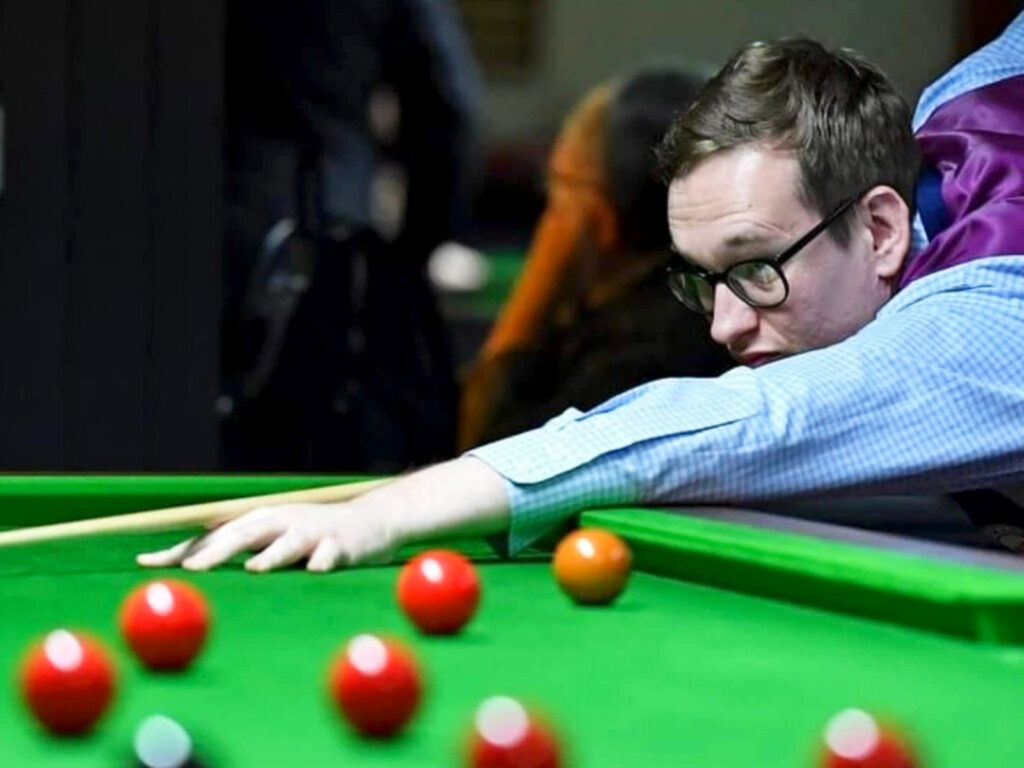James Lodge: Champion our differences

James Lodge is 26 years old and picked up his first snooker cue aged nine.
The sport has since taken him up and down the country through tour events, and the passion he has developed has seen him study sports management as an undergraduate at the University of Gloucestershire and at master’s level at Coventry University.
James recently reached the quarter-finals at the Stockport Open – the first time he has made the last eight on the World Disbaility Billiards & Snooker (WDBS) Tour – and continues to enjoy improving his snooker game with friend and coach Richard Thorpe.
How did you get involved in snooker?
I played snooker with a school friend. I was invited over to his house and it was the first time I came across it. He had a half-size table and I played on it and got hooked. I then played on my first full-size table at aged 11 and now for the last couple of years I’ve been playing in a town called Dereham.
Was it something that clicked with you straight away, or did it take a little bit of time?
It was a gradual process because I had to self-teach myself to play, and then in the last few years I’ve had coaching which has helped. My game’s definitely improved; I love the sport and that’s the reason why I’ll keep playing it because you learn something new every time you step up to the table or when you play someone for the first time, regardless of their ability, age or their desire to play.
What do you like most about snooker?
It’s like chess. You can make a couple of moves, and you can work out what’s going to happen next. I’m quite a tactical player and sometimes I can see the shot I’m going to take quite quickly – that’s helped my game a lot because I know where I need to be in the frame to win it.
Being on the spectrum, sometimes it can be overwhelming if you’re sorting something out or if something crops up and you have to adjust to it. Snooker is an escape and a lot of people, including myself, do it for the fun of the game. I even wrote my master’s dissertation on snooker and I talked about the benefits of the sport in a social context.

What did you learn from your dissertation?
It showed that snooker helped academic development such as in Maths and English for primary and high school children and adults. It reduces social anxiety, it brings communities together so cohesion develops and there’s more to offer in a local town and city. It also reduces depression and with it, it makes people feel comfortable within their surroundings and that they can develop their game at their own speed. It also has a massive part in culture, and I never truly realised that.
What would you say to people who are thinking about taking up snooker, be it recreationally or competitively?
Anyone can play regardless of whether you’re on the spectrum and everyone who I’ve met on tours are so friendly; some of them just enjoy the game and making new friends. I’m competitive but I also want to enjoy it and make new friends through snooker as well. People need to see that there’s a bigger picture rather than wanting to be competitive all the time.
How could someone get involved in snooker?
One thing is to find a club or coach in the area and you can look at that on the snooker governing body [WPBSA] website, which is where I found my coach – that was very helpful. Also, you could speak to the club you play at or want to play at about finding a starter cue, just to get yourself going, and speak to anyone within the area about any local leagues.
There’s also a WDBS tour, and you’ll find advice through autism charities such as Spautism or the National Autistic Society.
How does being autistic help you in snooker?
It helps with the numbers. I’m very fortunate with how I’m wired up as I can count quite quickly, because you have to keep looking at the scoreboard to see where you are.
The sport has helped with my focus because you play a lot of matches consecutively and it’s about having the mentality to relax and keep going, adapting to who you’re playing, the table, the speed of the table and where you are.
Some people may not find it not so easy adapting to a new environment. Keep focusing on the game and on what you’re doing, how you’re doing it, and why you’re doing it, and that will maximise the chance of winning the match and also being comfortable playing the game.
Do you feel more empowered about being autistic?
I love meeting new people on the spectrum because all of us are different in one way or another and I want to champion that. I want more people to understand autism and not see it as a disease or a virus. We deserve to be part of society, we shouldn’t be a minority.
What are your plans for the future and current ambitions?
I’d like to make a 50 break this year; I’m a few shots away from a 50 and hopefully I can make more. I’d also like to win titles more locally and in autism classification tournaments because I want to see where I’m at, but if there were a chance where I could play in some professional tournaments, I’d love to.


